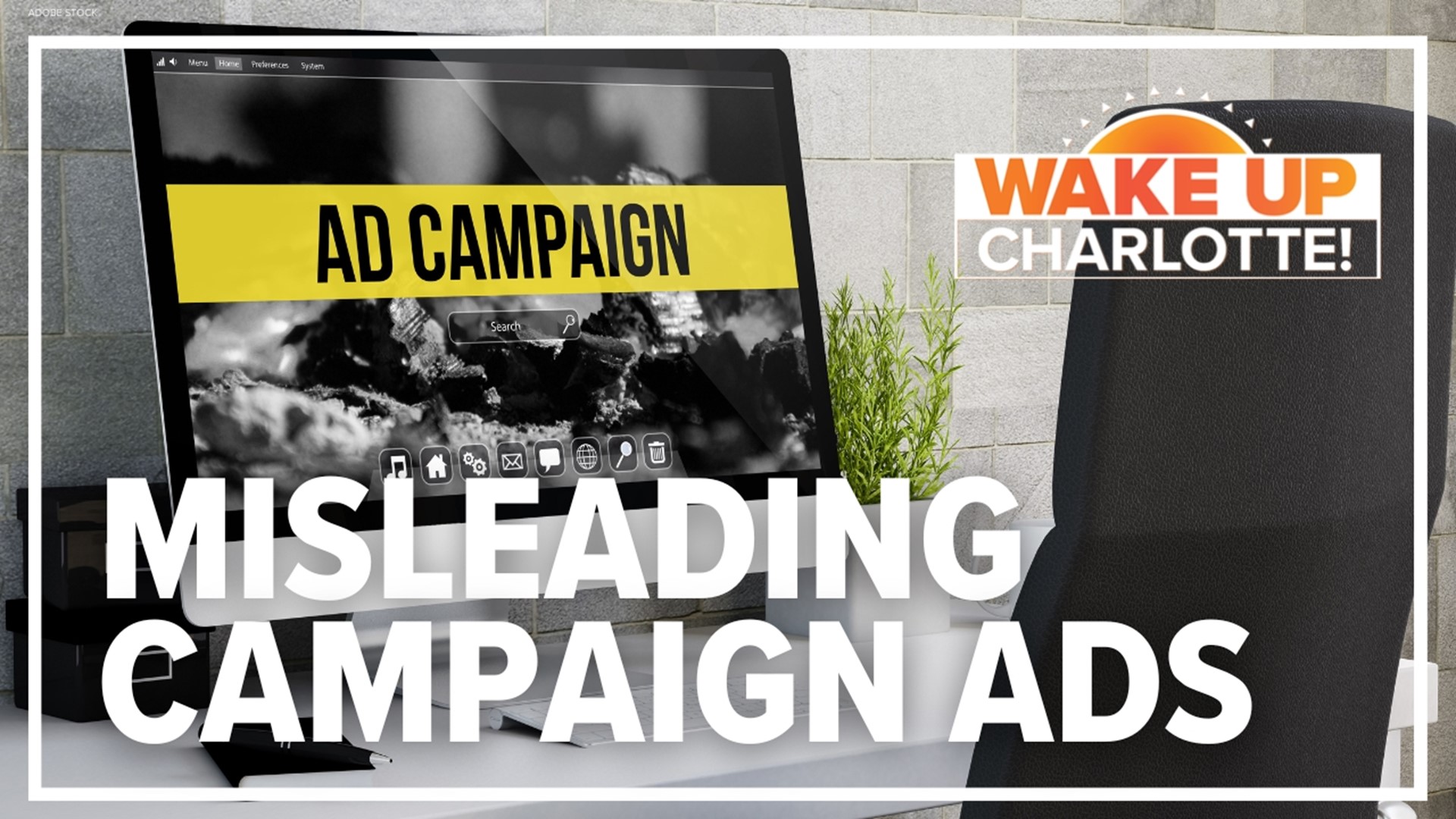CHARLOTTE, N.C. — With the 2022 midterm elections less than a week away, you've probably seen a ton of political ads on TV.
These ads aren't just paid for by candidates, but also by political action committees, or PACs. However, some people are frustrated that TV stations are running ads that appear to be misleading.
WCNC Charlotte's VERIFY team has received countless emails about these ads, asking why WCNC airs ads that make dubious claims. One reason: There are political ads that TV stations have to run thanks to a law that's been on the books for 90 years.
RELATED: 2022 midterm election voter guide
SOURCES
WHAT WE FOUND
"Federal law says that the TV station cannot censor a legally qualified candidate's ads," Mauney said.
Title 47 also states that broadcasting stations need to allow reasonable access to, or permit, the purchase of commercial time for a "legally-qualified candidate for federal elective office."
"There is a federal law in place that prohibits WCNC from changing the ad, making the candidate change the ad," Mauney said.
Mauney said this rule only applies to candidates who are legally qualified. Not third-party groups that can include PACs or Super PACS, which sometimes produce ads on behalf of certain candidates. Stations are not required to accept any third-party election ads because they aren't from an individual candidate. The candidate will occasionally challenge the accuracy of third-party ads; however, stations generally give latitude when evaluating challenged ads.
"The First Amendment guarantees that there will be a marketplace of ideas, which is called political speech and under our constitution is the most protected form of speech," Mauney said.
The federal law really comes down to censorship for ads from individual candidates Stations are not allowed to censor them, which includes changing them, asking the candidate to change them, or even refusing to run them at all.
"It means the station can't say this is a Republican or a Democrat or an independent therefore, we are going to run this and not that or change the content of this ad," Mauney said.
And yes, candidates can and do bend the truth in ads you see on TV. So do third-party groups. But Mauney says even misleading claims can be protected under the "freedom of speech" umbrella.
Contact Meghan Bragg at mbragg@wcnc.com and follow her on Facebook, Twitter and Instagram.
VERIFY is dedicated to helping the public distinguish between true and false information. The VERIFY team, with help from questions submitted by the audience, tracks the spread of stories or claims that need clarification or correction. Have something you want VERIFIED? Text us at 704-329-3600 or visit VERIFY.

